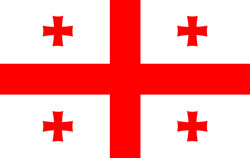- / Countries of the World
- / history
Georgia History

Index
Georgia Gains Independence from USSR
Georgia proclaimed its independence from the USSR on April 6, 1991. In Jan. 1992, its leader, Zviad Gamsakhurdia, was sacked and later accused of dictatorial policies, the jailing of opposition leaders, human rights abuses, and clamping down on the media. A ruling military council was established by the opposition until a civilian authority could be restored. In 1992, Eduard Shevardnadze, the Soviet Union's foreign minister under Gorbachev, became president.
During 1992–1993, the government engaged in armed conflict with separatists in the breakaway province of Abkhazia. In 1994, Russia and Georgia signed a cooperation treaty that authorized Russia to keep three military bases in Georgia and allowed Russians to train and equip the Georgian army. In 1996, Georgia and its breakaway region of South Ossetia agreed to a cessation of hostilities in their six-year conflict. With little progress in resolving the Abkhazia situation, however, Parliament in April 1997 voted overwhelmingly to threaten Russia with loss of its military bases, should it fail to extend Russian military control over the separatist region. In 1998, the U.S. and Britain began an operation to remove nuclear material from Georgia, dangerous remains from its Soviet years. A darling of the West since his days as the Soviet Union's foreign minister, Shevardnadze was viewed far less favorably by his own people, who were frustrated by unemployment, poverty, cronyism, and rampant corruption. In the 2000 presidential elections, Shevardnadze was reelected with 80% of the vote, though international observers determined the election was marred by irregularities.
